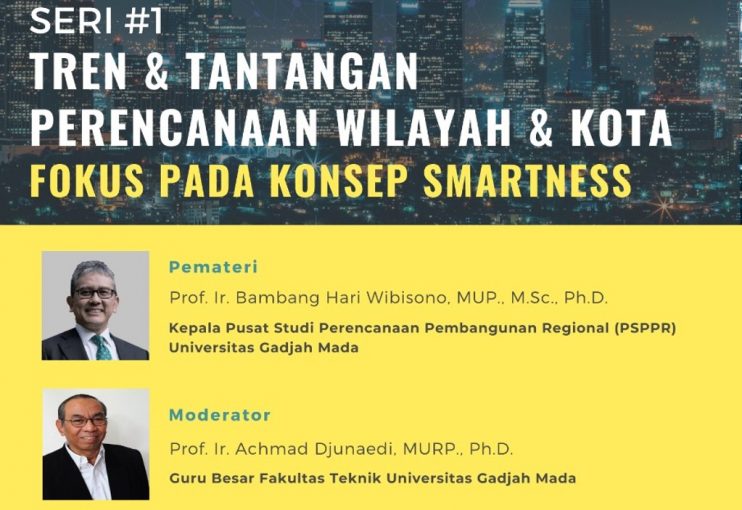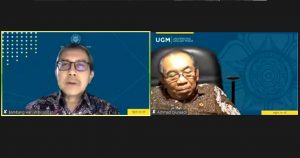
The development of information technology in recent decades has given rise to a planning concept that has been widely discussed in recent years, called Smart City. Starting from the development of e-government in the 2000s until in 2017 the Ministry of Communication and Information Technology launch a Movement program towards 100 Smart Cities which aims to guide regency/city in preparing Smart City Master Plans so that they can maximize the use of technology, both in improving community services and accelerating existing potential in each region.
To explore more to this topic, the Master of Regional and City Planning Universitas Gadjah Mada (MPWK UGM) held a Smart City Public Lecture Series to explore the discourse on Smart City from the perspective of Urban and Regional Planning (PWK) and introduce a new concentration of S2 MPWK UGM, namely Smart City. The speakers in this public lecture are Prof. Bambang Hari Wibisono – Head of UGM Regional Development Planning Study Center UGM and moderated by Prof. Achmad Djunaedi – Professor of UGM with a research interest in smart city topics.

In his presentation, Prof. Bambang Hari explained that with an increasingly urbanized world, it is necessary to develop new science to deal with challenges that have never appeared before (unprecedented). One of the disciplines adopted in the area of Urban and Regional Planning is the internet-of-things (IoT), Cyber-physical system, digital technology, and some of the potential that has emerged from industry 4.0. To prepare people to be able to use new applications and knowledge, digital literacy is needed.
Also, Prof. Bambang Hari explained that the concept of a smart city cannot stand alone but must be combined with other concepts such as a sustainable city, a resilient city, and a healthy city to form a better urban environment. This is because a smart city is not only seen from its many digital applications for community service but also develops a complete and comprehensive system to become a better city.

This online public lecture was held on November 3, 2019, through a zoom application with a total of 250 participants. The recorded video of this public lecture activity can be monitored on the MPWK UGM YouTube channel (Link).
